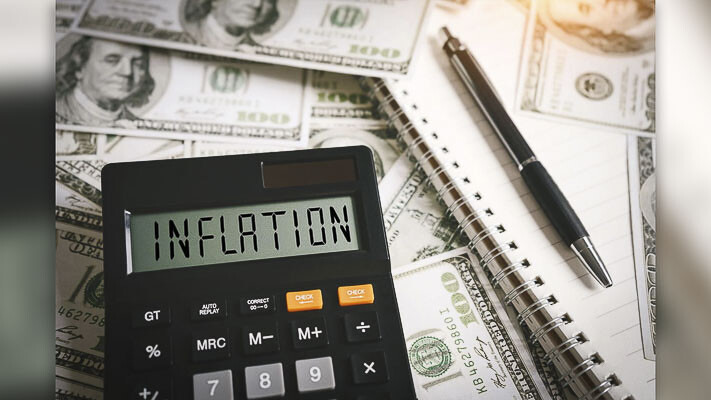
In the Economic and Revenue Forecast Council’s preliminary June forecast, it predicted a national GDP increase of 1.1% in 2023
Logan Washburn
The Center Square Washington
Washington state is predicting an economic “slowdown” in the U.S., according to a recent forecast.
“The forecast expects a slowdown in U.S. economic activity this year and in early 2024,” said Stephen Lerch, executive director of the state’s Economic and Revenue Forecast Council. “Compared to our March forecast, this slowdown has been shifted forward in time.”
In the council’s preliminary June forecast, it predicted a national GDP increase of 1.1% in 2023, 0.7% in 2024, 2% in both 2025 and 2026 then 1.9% in 2027. It based these numbers on May’s Blue Chip Forecast, according to Lerch.
“I don’t think this forecast qualifies as having a recession,” he said. “A commonly used definition is having two successive quarters of negative GDP growth.”
The council predicted Washington’s employment will increase 2.3% this year, and that its employment growth will average 0.7% from 2024 to 2027.
“We expect slower growth during the remainder of the forecast as the U.S. economy slows,” the forecast reads.
Washington’s unemployment rate has been rising since a low of 3.9% in June 2022. While the state’s unemployment declined from 4.6% in February to 4.3% in April, the forecast predicted a peak rate of 5% in 2024. The council expects it will fall to 4.5% by 2027.
At the same time, the state added 30,900 nonfarm payroll jobs from January to April, while the council only expected an increase of 3,200.
“Policymakers have been trying to bring together and balance out the supply and demand for workers,” Paul Turek, state economist for Washington’s Employment Security Department, previously said.
The council also predicts national oil prices will decrease. It predicted in March the price per barrel in the third quarter of 2023 would be $77, but now expects the price will be $74 per barrel. By 2027, the council expects the price will be $63 per barrel.
“Lower oil prices are a positive for Washington and other states that do not have oil wells,” Lerch said. “They enable consumers and businesses to spend less on energy-related expenses and more on other goods and services, or increase saving.”
The Center Square reached out to Turek for comment, but did not hear back in time for publication.
This report was first published by The Center Square Washington.
Also read:
- Rep. John Ley supports C-TRAN Bus Rapid Transit to save Washington moneyRep. John Ley praised C-TRAN’s new BRT line as a faster, lower-cost alternative to light rail, urging support for transit options that save taxpayers money and improve service.
- C-TRAN, WSU Vancouver celebrates groundbreaking for The Vine on Highway 99C-TRAN and WSU Vancouver broke ground on the Vine’s Highway 99 route, a 9-mile bus rapid transit line connecting the university to downtown Vancouver and the Waterfront, set to open in 2027.
- Letter: The Charterist III — Concerning the powers of the Legislative BranchJohn Jay continues his Charterist series, arguing that Clark County’s legislative branch is structurally weak and lacks the resources to balance the executive, calling for reform in the next charter review.
- C-TRAN board again postpones vote on light rail operations and maintenance costsThe C-TRAN board again postponed a vote on language regarding operations and maintenance costs tied to light rail expansion, with pending lawsuits involving Michelle Belkot continuing to impact board actions.
- Opinion: ‘Today’s Democratic Party is not our father’s Democratic Party’Editor Ken Vance reflects on how today’s Democratic Party diverges from the values he associates with his father’s generation, citing issues like taxation, gender policies, and shifting ideology in Washington state politics.
- Opinion: ‘The Interstate Bridge project lacks billions in funding from both Oregon and Washington’Lars Larson criticizes Oregon’s funding decisions, highlighting the billions missing from both states for the Interstate Bridge replacement project and calling it a dead-end effort lacking Coast Guard approval.
- Court rules against Save Vancouver Streets A judge has ruled against Save Vancouver Streets in its legal effort to place a street-use initiative on the ballot. The group is considering whether to appeal.











